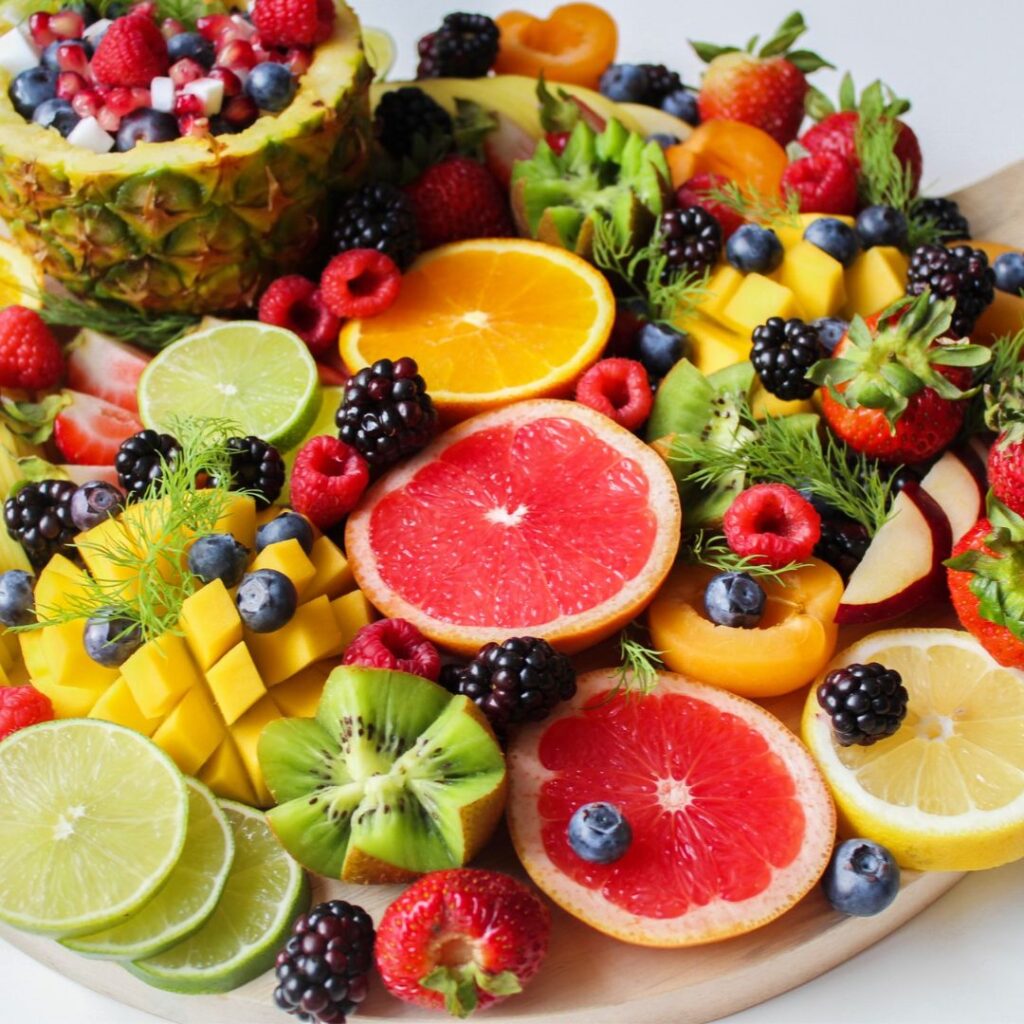Collagen is often associated with animal products, but did you know that there are plant-based foods that can boost your body’s natural collagen production? Collagen is the most abundant protein in the body, essential for skin elasticity, joint health, and overall well-being. While plant foods do not contain collagen in its direct form, they provide the necessary nutrients to stimulate collagen synthesis.
In this blog, we will explore the best vegetarian collagen-rich foods, their benefits, and how you can incorporate them into your diet for glowing skin and strong joints.
Understanding Collagen and Its Importance
Collagen is a structural protein that provides strength and elasticity to the skin, cartilage, tendons, and bones. As we grow, collagen production decreases naturally, leading to wrinkles and sagging skin. Factors like poor diet, smoking, excessive sugar intake, and UV exposure can accelerate collagen breakdown.
For vegetarians, consuming foods rich in amino acids, vitamins, and minerals that promote collagen synthesis is key to maintaining youthful skin and healthy joints.
Key Nutrients for Collagen Production
To boost collagen production naturally, your diet should include the following nutrients:
- Vitamin C – Crucial for collagen synthesis and protects against oxidative stress.
- Proline – An amino acid that forms the foundation of collagen.
- Glycine – Another essential amino acid needed for collagen formation.
- Copper – Activates enzymes that help produce collagen.
- Zinc – Supports cell regeneration and collagen formation.
- Antioxidants – Help protect collagen from damage.
Top Veg Collagen-Boosting Foods
1. Citrus Fruits

Citrus fruits like oranges, lemons, and grapefruits are rich in Vitamin C, which is vital for collagen synthesis. Vitamin C acts as a cofactor in collagen production and also prevents oxidative stress that breaks down collagen.
How to Consume:
- Drink fresh orange juice in the morning.
- Add lemon juice to your salads or warm water.
2. Berries
Strawberries, blueberries, and raspberries are loaded with antioxidants and Vitamin C, making them excellent for collagen production. They help restore free radicals that damage collagen.
How to Consume:
- Blend them into smoothies.
- Top your oatmeal with fresh berries.
3. Leafy Greens
Spinach, kale, and Swiss chard are packed with chlorophyll, which increases procollagen (a precursor to collagen) in the body. These greens also contain Vitamin C, iron, and magnesium, which support collagen production.
How to Consume:
- Add greens to salads and smoothies.
- Stir-fry with garlic and olive oil.
4. Nuts and Seeds
Almonds, walnuts, flaxseeds, and chia seeds provide essential amino acids, zinc, and omega-3 fatty acids, which help maintain collagen structure.
How to Consume:
- Snack on a handful of nuts daily.
- Sprinkle flax or chia seeds over your yogurt or oatmeal.
5. Garlic
Garlic contains sulfur, which plays a role in collagen synthesis and helps prevent its breakdown. It also has taurine and lipoic acid, which aid in repairing damaged collagen fibers.
How to Consume:
- Add minced garlic to soups, stir-fries, and curries.
- Use roasted garlic as a spread on whole-grain toast.
6. Soy Products
Tofu, tempeh, and soy milk contain genistein, a plant compound that helps increase collagen production and prevents enzyme damage that breaks it down.
How to Consume:
- Add tofu to stir-fries and salads.
- Drink soy milk or use it in smoothies.
7. Beans and Legumes
Lentils, chickpeas, and black beans provide amino acids like glycine and proline, essential for collagen production. They also contain copper and zinc, which further aid in collagen synthesis.
How to Consume:
- Prepare lentil soups or curries.
- Add chickpeas to salads and hummus.
8. Avocado
Avocados are rich in Vitamin E, which helps prevent collagen breakdown. They also contain healthy fats and antioxidants that keep the skin hydrated and youthful.
How to Consume:
- Spread mashed avocado on toast.
- Blend into smoothies for a creamy texture.
9. Tomatoes
Tomatoes are high in lycopene, a powerful antioxidant that protects collagen from damage and supports skin health.
How to Consume:
- Add fresh tomatoes to salads and sandwiches.
- Cook tomato-based soups and sauces.
10. Carrots
Carrots are rich in Vitamin A, which helps restore and regenerate collagen in the skin.
How to Consume:
- Eat raw carrots as a snack.
- Blend them into fresh juice or smoothies.
Tips to Maximize Collagen Production
- Limit Sugar Intake: Excess sugar leads to glycation, which damages collagen fibers.
- Stay Hydrated: Drinking enough water keeps collagen hydrated and elastic.
- Avoid Smoking and Excess Alcohol: These habits accelerate collagen breakdown.
- Use Collagen-Boosting Skincare: Look for Vitamin C and retinol-based products.
Conclusion
Even though collagen is mainly found in animal products, vegetarians can still boost their natural collagen production by consuming plant-based foods rich in Vitamin C, amino acids, and antioxidants. By incorporating citrus fruits, berries, leafy greens, nuts, soy, and other nutrient-dense foods into your diet, you can support collagen synthesis naturally and maintain youthful skin and strong joints.
Start making these foods a part of your daily routine and enjoy the benefits of healthy, glowing skin and improved joint health.
Also Read: 7 Amazing Benefits of Fenugreek Water You Should Know


1 thought on “Veg Collagen-Rich Foods: Boost Your Skin and Health”